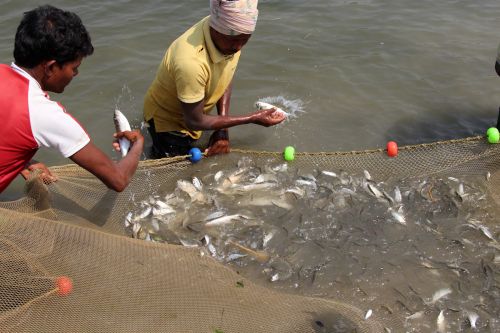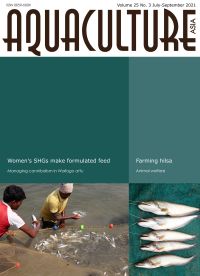Farming of the anadromous shad, Tenualosa ilisha: Signs of taking off in India
28 September 2021 | 1476 Downloads | .pdf | 1.68 MB | Freshwater finfish, India, Inland aquaculture
Clupeids are important food fishes in high demand and hence are heavily exploited across the World. Most tropical clupeids are un-domesticated and caught from the wild. The andadromous shad Tenualosa ilisha (also known as hilsa) is an economically important food fish in south and southeast Asia. Populations of the species are declining globally, largely due to overexploitation and habitat modification. Its fishery has drastically declined in the Bay of Bengal bordering India.
Considering the excessive demand and very high market price of the fish and to ease fishing pressure on its wild stocks, there have been efforts for domestication and farming of the species in India. The early efforts on breeding, larval rearing and grow out in captivity of the species were not measurably successful . However, momentum on developing captive breeding and farming technologies for this species has been re-invigorated with research funding from the Indian Council of Agricultural Research (ICAR), New Delhi, through a multi-disciplinary and multi-institutional project, "Stock characterization, captive breeding, seed production and culture of hilsa (Tenualosa ilisha)" since 2012.
This article describes progress and prospects of rearing T. ilisha in ponds and wetlands.
Creative Commons Attribution.

